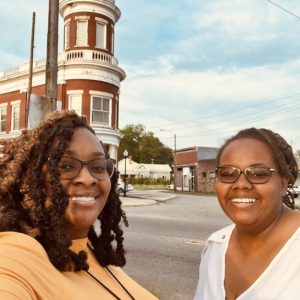Poor, Fat, and Christian: Embracing Faith Amid Life’s Challenges
Faith, identity, and the messy intersections of life shape how we see ourselves and navigate the world. Today, we explore three challenging aspects: poverty, body image, and faith. How do they coexist? More importantly, how can we find grace within them?
The Weight of Poverty
Poverty affects more than finances. It limits access, stability, and dignity. For example, the world measures success by possessions. When we have little, it often feels like failure—like we’re less worthy. However, faith reminds us we are beloved children of God, no matter our financial situation.
The Bible assures us of God’s provision: “And my God will meet all your needs according to the riches of his glory in Christ Jesus” (Philippians 4:19). Yet, paying rent, filling empty cupboards, and repairing cars can test our trust in those promises. Even so, God’s provision doesn’t always involve sudden windfalls. Strength to endure, a helping hand from the community, or creative problem-solving often carries us through tough times. As a result, poverty tests our resilience. It also deepens our reliance on God’s grace.
Body Image and the Temple of God
Society’s obsession with appearances makes being a person of size feel defiant. Furthermore, adding faith to the mix complicates matters. Many hear sermons or read scriptures like 1 Corinthians 6:19-20, which describe our bodies as temples of the Holy Spirit. But how do we reconcile that idea with a temple that doesn’t meet cultural ideals?
Importantly, God’s love never discriminates based on size. Therefore, our worth doesn’t depend on the scale or clothing sizes. The same God who knit us together in the womb (Psalm 139:13) crafted us with purpose. Consequently, embracing this truth helps us reject lies about appearance. Honoring our bodies becomes an act of worship, not an attempt to achieve perfection.
Faith in the Margins
Life at the intersection of poverty and societal judgment can feel isolating. Yet, Christians remember that Jesus lived among the marginalized. For instance, He was born in a stable. He walked with outcasts. He often lived without a home. As a result, Jesus’ ministry focused on those who felt unseen and unworthy.
Faith doesn’t promise ease. Instead, it offers assurance that we are never alone. It calls us to radical self-love, rooted in how God sees us. This deep love defies societal standards. Moreover, it celebrates the truth that we are fearfully and wonderfully made.
Finding Grace
Navigating poverty, body image, and faith doesn’t require all the answers. Instead, it asks for honesty, hope, and courage to keep walking. We lean on God’s promises, even when they feel distant. Furthermore, we seek community with those who understand our struggles. Speaking truth combats lies that whisper we are not enough.
If poverty or society’s judgment about your body has weighed on you, remember: you are loved. You are seen. And your faith—even if it feels messy or complicated—remains valid.
Let’s explore these intersections together. Together, we can find grace and strength along the way. Ultimately, our worth doesn’t come from possessions or appearances. It comes from the God who calls us by name.
I would like to know what you think about this blog! Comment below
Join The Rev. McKenzie Network for worship on Sunday morning on Facebook or YouTube.
Please take the time to read my last blog post: Crafting Your Church’s Online Identity


